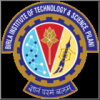How to become a Clinical Data Management
Overview, Courses, Exam, Colleges, Pathways, Salary

Overview
Who is Clinical Data Management ?
To become a clinical data analyst, you will need to study a variety of skills and competencies in both healthcare administration and computer science. Clinical data analysts examine information acquired from clinical trials to verify that the information gathered is accurate. A clinical data analyst is a member of the clinical data management team who works with health informatics, capturing research information from clinical trials and storing it in a database. Clinical data analysts deliver their recorded information to healthcare institutions and other medical firms after gathering reliable information from researchers.
Clinical data analysts are also responsible for the development and management of information healthcare databases, as well as the provision of training in software or technological programmes. They create methods to securely store data and keep up to speed on regulatory changes to guarantee that all data sets adhere to the highest ethical standards. A job as a clinical data manager is regarded to be very gratifying since it offers the opportunity to play an important part in the development of new pharmaceutical products. They play a critical role in the development of a clinical study`s foundation and give their professional opinions at various phases of the research, including data collecting methods, data management, and data analysis.
Typical day at work
What does Clinical Data Management do?
The core responsibilities of a clinical data manager are:
- They are expected to create data collection tools as well as other tools for verification, validation and quality control.
- They are required to check the quality of the gathered data for any kind of errors and inquire about the discrepancy.
- They are responsible for maintaining the privacy of the collected data by using security control tools. They also protect the data from cyber threats.
- They head the Pilot clinical studies for the related software for data management.
- They must prepare and manage the database entries as well as analyze the reports, tables and graphs for the same.
- They are required to bring out innovative solutions to any ongoing problem in the data and operations department.
- They must keep a check on the in-house flow of data as well as electronic forms transfer. They also choose specific software programmes for distinct research areas.
- They need to hold discussions with the end-user to implement specifications such as data release formats, delivery schedules, and protocol testing
Abilities and Aptitude needed
What are the skills, abilities & aptitude needed to become Clinical Data Management?
Clinical data managers are expected to have a variety of abilities, including the following: The ability to problem-solve allows clinical data analysts to assess the information obtained and decide how their health institution can better serve their patients while also identifying areas for improvement.
Expertise in using computer software: Clinical data analysts often utilise computer software to assemble data, evaluate technical information, and develop databases, thus they must be proficient in using computer software.
Data collection: To analyse data, clinical data analysts must first collect information on the factors that they want to test and answer questions about.
Collaboration: Clinical data analysts collaborate with a wide range of team members, including clinical research associates, regulatory staff members, project managers, and quality assurance staff members, to gather and analyse data.
Mathematical abilities: Clinical data managers use mathematical abilities to assist them in making and validating their analytical and statistical findings. Clinical data analysts employ analytical and logical approaches to solve complicated issues, as well as problem-solving abilities while dealing with sensitive information. Attention to detail: Because clinical data analysts evaluate a large amount of information, it is beneficial for them to have a keen eye for detail to discover trends and patterns, check data correctness, and monitor data utilisation. Clinical data analysts must be skilled communicators to effectively communicate their results to their team members.
Pathways
How to become an Clinical Data Management?
Entrance Exam
Entrance Exam for Clinical Data Management ?
Courses
Which course I can pursue?
Best Colleges
Which are the best colleges to attend to become an Clinical Data Management?
Industries
Which Industries are open for Clinical Data Management?
internship
Are there internships available for Clinical Data Management?
Career outlook
What does the future look like for Clinical Data Management?
The career outlook of clinical researcher is spread out as they work in researches in the field of pharmaceutical or biotechnology organizations. They can also look forward to joining in public, private and scholastic related researches along with departments related to data management in hospitals. They usually work in office settings, mainly on a shift basis that lasts for around 8 hours. Their initial start off as a career position is of data analysis, then they gradually work towards becoming data managers. The vacancies for the career have increased drastically with an average growth of 5.68% per year. The demand is still expected to rise in the upcoming years that will contribute to 1.46% of the annual increase over the next few years. This expansion in the field will give advance to the IT sector throughout the healthcare industry, especially in clinical trials.




.webp)


